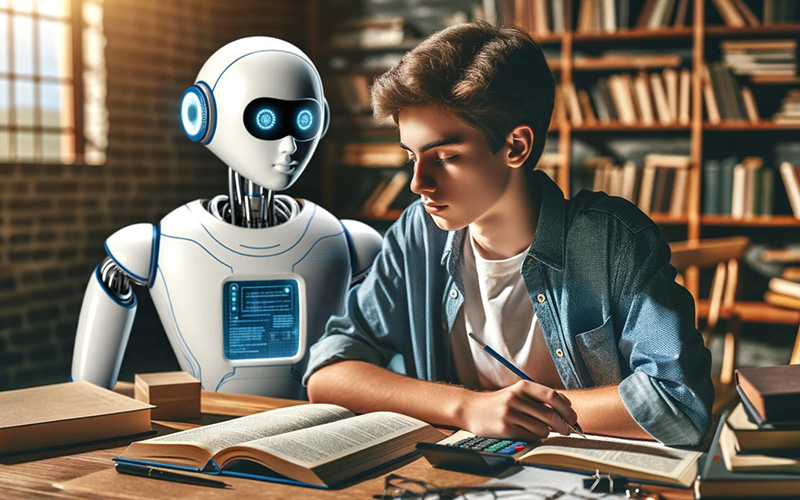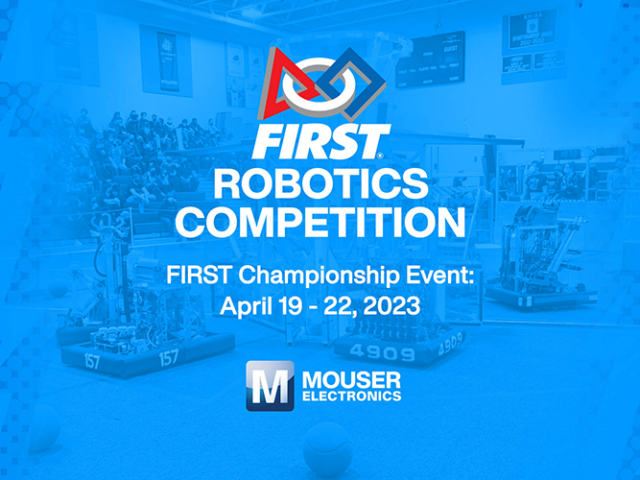In an era where technology, especially AI, is rapidly evolving, engineering students across various disciplines – from physical engineering, chemical engineering and data science – are facing a pressing dilemma. As AI continues to advance, there’s a growing apprehension about its potential to replace human roles or at least diminish the demand for certain professions. Yet will AI reshape the engineering landscape so much that you should reconsider your place in the profession?
AI’s growing role in mechanical engineering
AI is revolutionising mechanical engineering, enhancing productivity, efficiency, and innovation. AI’s applications in this field are diverse, transforming everything from design optimisation to predictive maintenance and autonomous systems. For instance, machine learning algorithms by software company Neural Concept have made significant strides in mechanical design. In a real-world scenario, these algorithms can be applied to improve upfront mechanical designs, offering more efficient and sustainable solutions. This integration of AI into mechanical engineering workflows can help engineers address modern challenges, such as creating energy-efficient and sustainable systems.
The emerging collaboration scenario in engineering involves data scientists and expert engineers working together to develop AI turnkey solutions. While engineers with programming and AI algorithm expertise might focus on data analysis, most mechanical engineers will likely utilise AI solutions to enhance their core skills, such as in factory automation, material synthesis, and product design, including CAD. This collaborative approach leverages AI’s capabilities while allowing engineers to focus on their domain expertise.
The impact on data science and engineering
Data science, encompassing the analysis and interpretation of complex datasets, is becoming integral to modern engineering. The field of mechanical engineering, traditionally concerned with physical systems and processes, now increasingly relies on data science and AI for innovative solutions. This includes applications of deep learning in 3D simulations, which are particularly relevant for mechanical engineers. These AI-driven simulations can replace traditional numerical methods, offering faster and more accurate results.
For mechanical engineers, the integration of AI and data science into their work represents a significant shift. It moves beyond traditional engineering tasks, incorporating elements of AI model development and data analysis. This shift is evident in various AI use cases in mechanical engineering. For example, Neural Concept’s AI algorithms have been applied to turbomachinery, enabling engineers to quickly evaluate performance under different operating conditions. Another use case involves optimising heat exchanger designs, where AI models predict performance in real-time and assist in shape optimisation.
AI’s influence on chemical engineering
Traditionally focused on the development and optimisation of chemical processes, the field is increasingly leveraging AI to innovate and refine these processes. AI’s ability to analyse complex chemical data sets is revolutionising the way chemical engineers approach challenges, from the synthesis of new materials to the optimisation of industrial processes. Deep learning, a subset of AI, is particularly instrumental in simulating complex chemical reactions, offering a more efficient alternative to conventional methods. These AI-driven simulations and models can process vast amounts of data to predict reaction outcomes or process efficiencies, enabling faster, more accurate results. This shift towards integrating AI and data science into chemical engineering goes beyond conventional tasks, introducing advanced capabilities in data analysis and predictive modelling.
No longer confined to traditional laboratory or plant-based roles, they are now expected to understand and utilise AI-driven tools for various applications. One such application is in the optimisation of chemical manufacturing processes, where AI algorithms can enhance efficiency, reduce waste, and improve safety. Another instance is the use of AI in material science, where engineers can expedite the discovery of new compounds or materials with specific desired properties. AI models are capable of predicting the behaviour of complex chemical systems, aiding in the design and testing of new chemical products.
Shifting educational landscape and career prospects
Universities are adapting to this shift. For instance, Carnegie Mellon University’s College of Engineering has introduced new master’s degrees in AI Engineering, blending engineering domain knowledge with AI and machine learning fundamentals. This approach reflects a growing trend in education – equipping students with the skills to thrive in an AI-enhanced engineering environment.
The need for digital skills and programming knowledge in engineering is becoming increasingly apparent. Programming languages like Python are essential for engineers to handle complex or large datasets. This shift in skill requirements doesn’t diminish the value of an engineering degree but rather enhances it, providing new avenues for innovation and career development.
Most affected careers and future outlook
Repetitive and Data-Intensive Roles: Careers that involve repetitive tasks or extensive data processing are likely to be most affected by AI. For instance, roles that focus on data entry, routine coding, or basic data analysis are prime candidates for automation. In these cases, AI can perform the same functions more efficiently and without the fatigue or errors associated with human labour. The implication here is not necessarily the obsolescence of these roles but a shift in their nature. Professionals in these areas may need to adapt by focusing more on managing and overseeing AI systems rather than performing the tasks themselves.
Design and Simulation Engineers: In fields like mechanical and civil engineering, design and simulation tasks are increasingly being augmented by AI. AI’s ability to rapidly process and simulate myriad design variations can significantly speed up the development process. However, the creative and decision-making aspects of these roles remain inherently human. Engineers in these fields might find themselves leveraging AI to generate options and conduct initial analyses but still engaging deeply in the evaluative and decision-making processes.
Quality Assurance and Testing: AI is also transforming roles in quality assurance and testing. With AI’s capacity for pattern recognition and anomaly detection, it can efficiently identify defects or issues in products or systems. While this might reduce the demand for manual testing, it enhances the importance of professionals who can interpret AI findings and integrate them into broader quality control strategies.
Predictive Maintenance: In fields like manufacturing, roles focused on maintenance are evolving. AI’s predictive capabilities enable early identification of potential breakdowns or failures in machinery. This shifts the maintenance role from a reactive to a proactive stance, focusing more on optimising maintenance schedules and strategies rather than dealing with breakdowns.
Conclusion
Yet the explosion of AI in the field of engineering and data science is not a signal for the obsolescence of these degrees. Instead, it represents an evolution in the required skill set. AI is not a replacement for human intelligence and creativity but a powerful tool that enhances these qualities.
As the industry evolves, so too must the education and training of future engineers, who will find themselves working alongside AI, leveraging its capabilities to tackle more significant and complex challenges. The engineers and data scientists of tomorrow will likely be those who can harmoniously blend their domain expertise with AI proficiency, carving out unique and innovative career paths in an increasingly technology-driven world.




